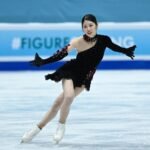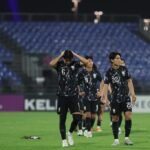I came across a few posts here and I couldn’t help but recall some incidents that happened during my college years.
So, for context: I’m a big fan of MAMAMOO, Dreamcatcher, (G)I-dle, KARD, KISS OF LIFE, and ONEUS, in terms of K-pop groups. Usually, I listen to acoustics more like CHOSNG, Younha, CHEEZE, and Stella Jang. Some artists aforementioned aren’t the “trendiest” or has the most views, yes, but I love their music regardless. I’m not much into joining fandoms as well; rather, I only watch MVs and performance/live videos online.
Back in college, I was busy with academics so I wasn’t in the loop for the newest K-pop releases. To my pleasant surprise, ONEUS just released Baila Conmigo and I only learned about it the morning after its release while I was preparing for class. I excitedly chatted with my friend, Gemma (fake name), about the comeback一though she wasn’t a TOMOON but a sole STRAY KIDS fan (sorry, I don’t know the fandom name), she was open for discussion about any Kpop group. We were chatting when another friend of ours, Drew (fake name), butted in and said something along the lines of, “yeah, I’ve heard of ONEUS but I didn’t give them a chance because they have little views.” And Gemma and I were like一”???????” Both of us just dismissed him and continued our conversation.
Another incident involved me and our entire friend group. Drew was gushing about Le Sserafim and aespa, blasting their songs in the classroom. At that time, our professor was with us, chilling in the room while classes hadn’t started. Me and my professor have some form of vocal training respectively and we were talking about how some of the vocals of the groups sounded strained, like they were pushing their voices to the brink just to hit the high notes. We weren’t bashing on the groups, just to make it clear for the stans一rather, we were concerned that their vocal coaches let them abuse their throats like that. Our topic diverted to MAMAMOO and how they have great vocals and harmony. For us, they were the model for vocals in Kpop. Another member of our friend group, Kim (fake name) agreed and joined in our discussion about MAMAMOO. Drew was absolutely livid, since he overheard us. Told me something along the lines of “MAMAMOO is dated” or they don’t have as much views as Le Sserafim.
Like yeah, I get it, Le Sserafim can easily get a hundred millions views with each MV, while MAMAMOO can be more lowkey, but is view count really THAT necessary to stan a group? I know it sounds like it has an obvious answer but really, I’m genuinely curious on how other people look to when discovering other artists. I stanned (G)I-dle since debut so I didn’t really anticipate that they’d reach their current influence and popularity, since they were from a smaller company. I became a fan of MAMAMOO because Egotistic is such a sexy and mature song that I accidentally discovered while searching for EGOIST’s (a JP group) new song. From the ONEUS remark alone, I was cringing at him already. I felt a bit offended, to say the least. I genuinely think ONEUS is a really good group, even though they don’t have that much clout compared to others. Drew also rides on the bandwagon with STRAY KIDS, BTS, and SEVENTEEN since they also get hundred million views, but ended dropping BTS and SEVENTEEN because he felt that, according to him, “if it were back then, then he would’ve stanned.”
I’m sorry if my statistics on the view count are a little inaccurate. I’m not really into Kpop and its fandoms, apart from my favorites, as I mentioned earlier, so I’m not in the loop for most. Also, sorry for the long post, but yeah, I hope you made it this far. I’m open to any opinions from anybody. Thank you.
submitted by /u/acne_to_zinc
[link] [comments]















